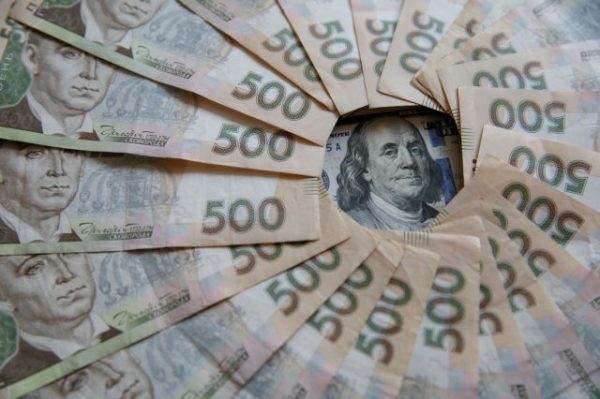
A “complete” recovery from the pandemic would require the GDP of the eurozone countries to grow significantly above the pre-pandemic trend, Citigroup estimated in a special analysis by its economist Christian Schulz.
The rapid reduction in public debt that increased by 20 percentage points in the eurozone during the six years of the pandemic is unrealistic and perhaps not even desirable.
According to the bank’s calculations, a permanent increase in production by just 1 στην% of GDP in the eurozone would be enough to offset the debt increase of 20% of GDP during the pandemic period.
The ECB, on the other hand, would like a stronger recovery, and although inflation has already returned to pre-pandemic levels, this is not so important, as the central bank’s monetary policy is using almost the same means which were simply strengthened during the pandemic.
Greece
Regarding Greece, however, the bank’s forecasts are rather good, as in a separate report on the eurozone economies, Citigroup estimates that the Greek economy is entering a multi-year upward cycle of strong growth, while the Greek Recovery Plan commits the largest amount of resources as a percentage of GDP in the Eurozone reaching 16% of GDP for the next 6 years (of which almost 10% concerns grants).
It is characteristic that in its long-term forecasts for the Greek economy, it expects strong growth for at least the next 5 years.
In particular, the GDP growth rate for 2021 is estimated at 4.1% for 2022 at 6.5%, for 2023 at 3.9% for 2024 at 3.4% and for 2025 at 3 , 3%.
Latest News

New Exposé by Domumento Reveals Nefarious Triangular Link of ‘Black Money’ with New Democracy, Blue Skies, & Truth Team
The latest exposé by the Documentonews.gr news site lays bare what appears to be a surreptitious path of indirect financing of ND through the business sector—transactions that, as widely understood, rarely occur without expectations of reciprocal benefit

PM Meloni Meets Vice President Vance in Rome Signalling Optimism on Ukraine Talks
Meloni emphasized the strength and strategic value of the Italy-U.S. partnership.

Airbnb: Greece’s Short-Term Rentals Dip in March Amid Easter Shift
Data from analytics firm AirDNA shows that average occupancy for short-term rentals dropped to 45% in March, down from 49% the same month last year.

Easter Week in Greece: Holy Friday in Orthodoxy Today
At the Vespers service on Friday evening the image of Christ is removed from the Cross and wrapped in a white cloth

Meloni and Trump Meet in Washington, Vow to Strengthen Western Ties
“I am 100% sure there will be no problems reaching a deal on tariffs with the EU—none whatsoever,” Trump stressed.

ECB Cuts Interest Rates by 25 Basis Points in Expected Move
The ECB’s Governing Council opted to lower the deposit facility rate—the benchmark for signaling monetary policy direction—citing an updated assessment of inflation prospects, the dynamics of underlying inflation, and the strength of monetary policy transmission.

Current Account Deficit Fell by €573.2ml Feb. 2025: BoG
The improvement of Greece’s current account was mainly attributed to a more robust balance of goods and, to a lesser extent, an improved primary income account

Hellenic Food Authority Issues Food Safety Tips for Easter
Food safety tips on how to make sure your lamb has been properly inspected and your eggs stay fresh.

Greek Kiwifruit Exports Smash 200,000-Ton Mark, Setting New Record
According to data by the Association of Greek Fruit, Vegetable and Juice Exporters, Incofruit Hellas, between September 1, 2024, and April 17, 2025, kiwifruit exports increased by 14.2%.

Easter Tourism Boom: Greece Sees 18.3% Surge in Hotel Bookings
Among foreign markets, Israel has emerged as the biggest growth driver, with hotel bookings more than doubling—up 178.5% year-on-year.







![Πλημμύρες: Σημειώθηκαν σε επίπεδα ρεκόρ στην Ευρώπη το 2024 [γράφημα]](https://www.ot.gr/wp-content/uploads/2025/04/FLOOD_HUNGRY-90x90.jpg)





![Airbnb: Πτωτικά κινήθηκε η ζήτηση τον Μάρτιο – Τι δείχνουν τα στοιχεία [γράφημα]](https://www.ot.gr/wp-content/uploads/2024/07/airbnb-gba8e58468_1280-1-90x90.jpg)



























 Αριθμός Πιστοποίησης
Αριθμός Πιστοποίησης